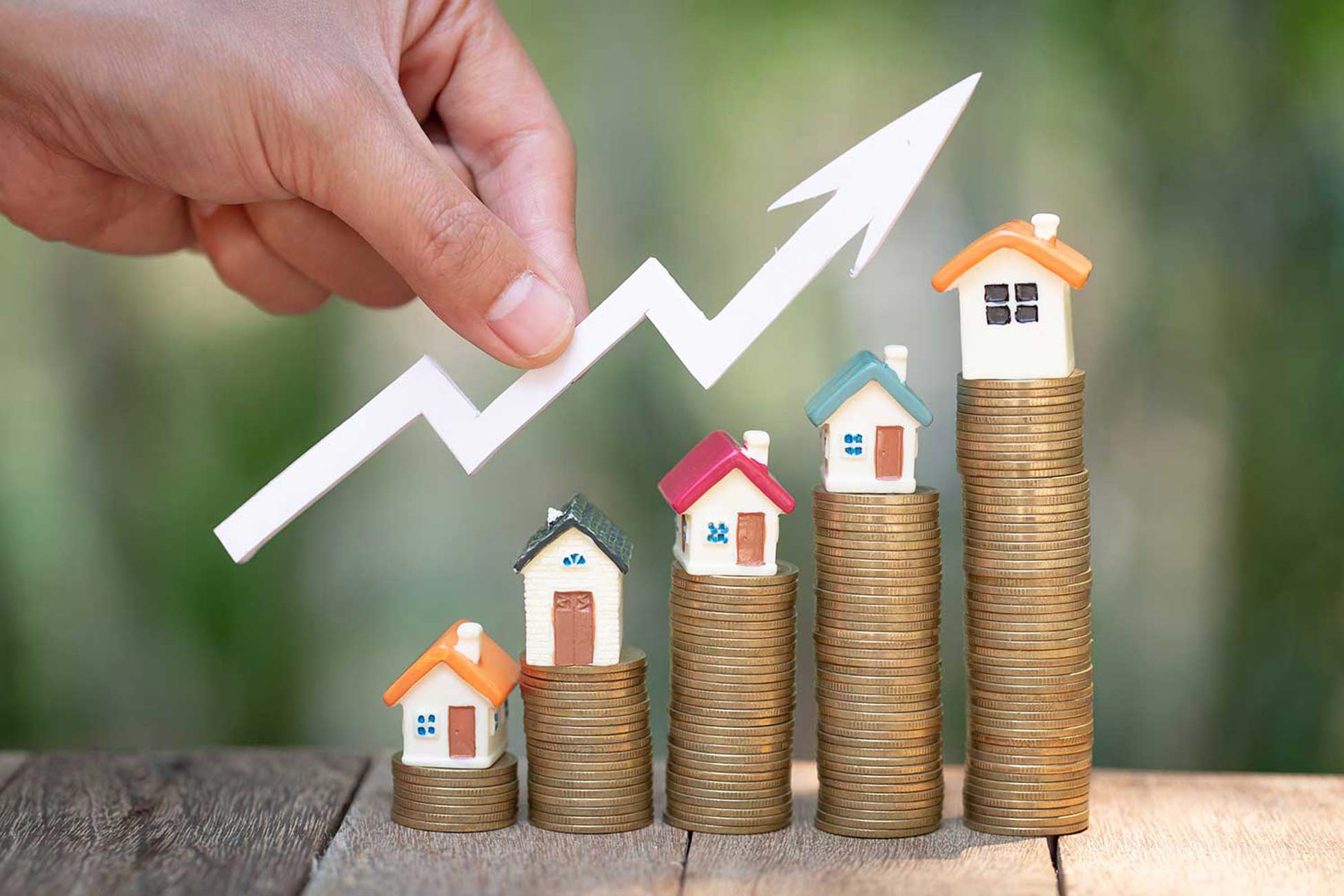Australia’s property market has boomed over the past 12 months and the coronavirus pandemic and subsequent lockdowns have done little to curb the skyrocketing trajectory of property prices.
Since the Reserve Bank slashed rates to a record low 0.10% in March last year, house prices have risen by 1% to 2% each month meaning property prices rose by to $10,000 per month in many parts of the country.
Australia’s national median house price has climbed exceptionally close to the million-dollar mark at $955,927 – which is a huge 18.8% increase over the year, or 5.8% over the June quarter, according to Domain’s latest quarterly House Price Report.
In fact, 6 Aussie states have hit record highs for their third consecutive quarter, while the other two are again at their highest point in several years.
But the median house prices only tell half the story – when you look more granularly, some areas have seen substantially stronger growth.
According to recent realestate.com.au data, more than 250 suburbs across Australia have seen house prices increase by $200,000 or more over the past 12 months.
A lucky 24 suburbs saw their prices soar to $50,000 and beyond each month – most of those in NSW.
The highest of all rose by $1.2 million in a year — which is more than $100,000 a month.
Australia’s most expensive state, New South Wales, accounted for 88% of these $50,000-plus monthly growth suburbs.
Of these, suburbs in Sydney’s Northern Beaches and eastern suburbs accounted for the majority.
But the top spot was taken by the increasingly popular and trendy beachside town of Byron Bay in far northern NSW.
The area, which is famous for its celebrity clientele - had the highest growth seen across the country with the median property price now sitting at $2.7 million.
That’s a whopping increase of $1.286 million in the space of just a year or $107,166 per month.
The normal house price in Byron Bay basically doubled, going from $1.41 million in 2020 to $2.7 million a year later.
Northbridge in Sydney’s North also saw a huge jump in median prices, taking second place on the list.
The suburb’s median property price has risen $1.04 million over the past year or $86,666 per month to a new median of $4.07 million.
Palm Beach, Bronte and Killara made up the remainder of the top 5 with median property price increases in the realm of $965,000, $890,000 and $887,500 respectively.
Top 10 Australian suburbs with the biggest hike in median house price rises
Buyers flock to beachside suburbs
It wasn’t just Byron Bay that saw property demand heighten as people re-evaluated how they live in the new Covid-19 world.
Demand for beachside suburbs has also been a driving force behind many of Victoria’s highest growth suburbs.
In Somers, on the Mornington Peninsula, the median house price has risen in excess of $500,000 in just 12 months, the data shows.
The beachside suburbs of Black Rock and Blairgowrie in Melbourne have also seen significant gains in the median cost of a house, each with rises of more than $400,000 over the past year.
In Queensland, Sunshine Beach on the Sunshine Coast has seen the largest dollar value increase in house prices, rising just shy of $700,000.
In Tasmania it was Sandy Bay that saw the greatest increase, with its median house price rising $209,000 over the past 12 months.
Access to the water was also a key driver of price growth in Western Australia, where the riverside suburb of Dalkeith and oceanfront Cottesloe came out top, recording median house price rises of $495,000 and $460,000, respectively.
This is perhaps unsurprising given ABS data shows that people are pouring out of capital cities in search of more space and an escape from the threat of lockdowns, with 10,000 people every quarter leaving metropolitan areas – the highest number ever recorded.
At the same time, the pandemic has changed not only where people want to live, but also the type of property they want to live in.
The Covid-19 pandemic restrictions have significantly changed home ownership goals and what Australians want most in their next home.
With more Australians working from home and juggling school and family commitments under one roof, spacious living is now the top priority, further accelerating the trend towards larger homes.
There has also been a renewed interest in the concept of the 20-minute neighbourhood where buyers want to live in a property where there is everything available at their fingertips.

















